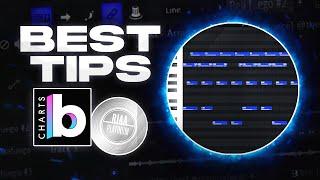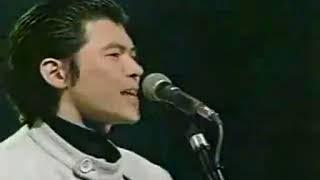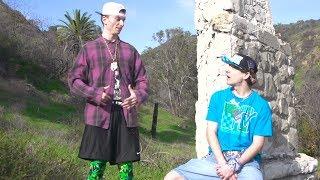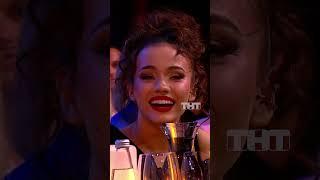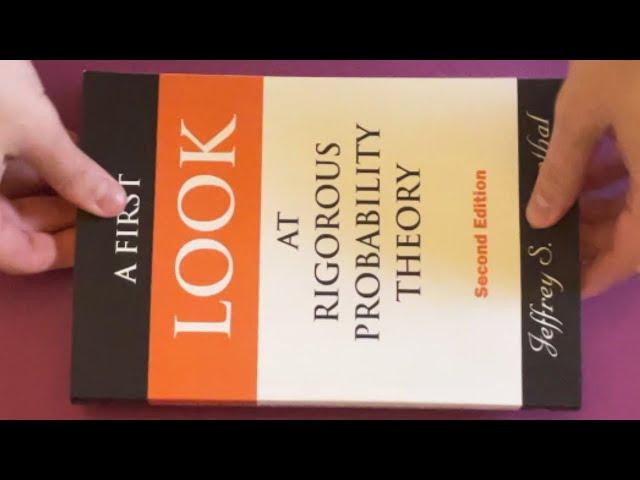
Stepping Into Measure Theory
This is a book I have been wanting for a while. It has been taking a long time to chew on, but I was enjoying it so much I could not wait till the end to do a review. I think the book is fantastic. I think measure theory is difficult. At least for me it is hard for self study. To date, this is the best book I have read on it so far. I like that the authors spend the time motivating the subject.
Script:
Terence Tao has some writings on Measure Theory, but I felt I needed a little more handholding.
I've never had a Measure Theory class in graduate school, and so this was mostly for
self-learning. I wanted to know a little bit more about this field, so I picked up this book.
The contents of the book are somewhat brief. There's 15 chapters, and I'm still working
through the book, so it's a book I haven't quite finished yet. I've been really impressed with
the motivation it gives for Measure Theory. That's something I've always been curious about.
I've always felt that with the axioms of probability, I had a very good foundation for
the rest of my life. What else could there be? The authors address this right at the beginning.
They give in an answer for the motivation for Measure Theory. Now, I'm not going to get into
the authors' arguments here. I can save that for another time. I just wanted to highlight that the
book did a really good job knowing where I was at, at least, and maybe other readers feel the same
when it comes to Measure Theory. Something else that surprised me was the concept of a
probability triple. I've read so many statistic books, and I have never come across a probability
triple. Maybe I just overlooked it or I wasn't reading carefully. This book made the probability
triple its own topic. I thought the description was thorough and fantastic. I was able to fall
along pretty well, and again, this is coming from someone who hasn't had formal education
in Measure Theory. I was very impressed with how well the book laid out the content so that I
could follow it. After laying the foundations, the book then goes into some content that I am a
lot more familiar with. Ideas are random variables, for example. I wouldn't say that I was too
surprised by the content, but I was able to think about it in the context of the broader ideas of
Measure Theory and probability triples. I've never heard of tail fields before. This is a new idea.
Expected values is one of the most common things covered in a statistics book, and this book goes
fairly deep into expected values. Chapter 5 hits inequalities and convergence. Convergence isn't
again one of those topics that I am a little understudied on, but I am aware of a few inequalities
that are useful for probability and statistics. And this is about as far as I made it in the book.
Some of the other things that I've seen as I looked ahead was ideas around
stochastic processes. A while ago, I read a book. I think it was called Stochastic Processes in R.
I become a little bit familiar with stochastic processes. It's something that I don't really
deal with too often, so personally, I'm not too interested in stochastic processes. Markov chains
I think are interesting. The main chain I'm familiar with is Markov chain Monte Carlo,
the chains that you commonly see in Bayesian computation. Chapter 11 talks about characteristic
functions, and this is a topic that's a big deal, characteristic functions, moment generating
functions, cumulant functions. These are all terse ways of expressing probability distributions,
and they have a lot more functions than this, but that's also a topic for another video.
Of course, this book goes into much more depth than I'm used to. This book also covers Martin
Gales, and this is something I really wanted to become a little bit more familiar with. It's
a subject I don't know too much about, and I know it's a big deal in theoretical probability or
measure theory, and so I was really happy to see it in this section. In fact, having a dedicated
space for it was one of the main reasons I bought the book. Overall, some reasons that I've enjoyed
this book so far is that I love the idea of probability triples. That was such an eye-opening
concept for me. A very parsimonious way to describe the tools of a probability measure,
and I'm excited to get into the Martin Gales, so for my opinion, this book has been better than a
lot of the free online measure theory that I've read. I think it provides a lot more motivation
for ideas, and sometimes the motivation is what keeps me going. I'm not sure if you've had an
experience where maybe you read a Wikipedia page and you're just left wondering why is this even
important? Why am I even, why is this even a concept worth covering? And I felt a lot more
comfortable with the motivation for the ideas after reading this book, and that's it. Thanks for watching.
Script:
Terence Tao has some writings on Measure Theory, but I felt I needed a little more handholding.
I've never had a Measure Theory class in graduate school, and so this was mostly for
self-learning. I wanted to know a little bit more about this field, so I picked up this book.
The contents of the book are somewhat brief. There's 15 chapters, and I'm still working
through the book, so it's a book I haven't quite finished yet. I've been really impressed with
the motivation it gives for Measure Theory. That's something I've always been curious about.
I've always felt that with the axioms of probability, I had a very good foundation for
the rest of my life. What else could there be? The authors address this right at the beginning.
They give in an answer for the motivation for Measure Theory. Now, I'm not going to get into
the authors' arguments here. I can save that for another time. I just wanted to highlight that the
book did a really good job knowing where I was at, at least, and maybe other readers feel the same
when it comes to Measure Theory. Something else that surprised me was the concept of a
probability triple. I've read so many statistic books, and I have never come across a probability
triple. Maybe I just overlooked it or I wasn't reading carefully. This book made the probability
triple its own topic. I thought the description was thorough and fantastic. I was able to fall
along pretty well, and again, this is coming from someone who hasn't had formal education
in Measure Theory. I was very impressed with how well the book laid out the content so that I
could follow it. After laying the foundations, the book then goes into some content that I am a
lot more familiar with. Ideas are random variables, for example. I wouldn't say that I was too
surprised by the content, but I was able to think about it in the context of the broader ideas of
Measure Theory and probability triples. I've never heard of tail fields before. This is a new idea.
Expected values is one of the most common things covered in a statistics book, and this book goes
fairly deep into expected values. Chapter 5 hits inequalities and convergence. Convergence isn't
again one of those topics that I am a little understudied on, but I am aware of a few inequalities
that are useful for probability and statistics. And this is about as far as I made it in the book.
Some of the other things that I've seen as I looked ahead was ideas around
stochastic processes. A while ago, I read a book. I think it was called Stochastic Processes in R.
I become a little bit familiar with stochastic processes. It's something that I don't really
deal with too often, so personally, I'm not too interested in stochastic processes. Markov chains
I think are interesting. The main chain I'm familiar with is Markov chain Monte Carlo,
the chains that you commonly see in Bayesian computation. Chapter 11 talks about characteristic
functions, and this is a topic that's a big deal, characteristic functions, moment generating
functions, cumulant functions. These are all terse ways of expressing probability distributions,
and they have a lot more functions than this, but that's also a topic for another video.
Of course, this book goes into much more depth than I'm used to. This book also covers Martin
Gales, and this is something I really wanted to become a little bit more familiar with. It's
a subject I don't know too much about, and I know it's a big deal in theoretical probability or
measure theory, and so I was really happy to see it in this section. In fact, having a dedicated
space for it was one of the main reasons I bought the book. Overall, some reasons that I've enjoyed
this book so far is that I love the idea of probability triples. That was such an eye-opening
concept for me. A very parsimonious way to describe the tools of a probability measure,
and I'm excited to get into the Martin Gales, so for my opinion, this book has been better than a
lot of the free online measure theory that I've read. I think it provides a lot more motivation
for ideas, and sometimes the motivation is what keeps me going. I'm not sure if you've had an
experience where maybe you read a Wikipedia page and you're just left wondering why is this even
important? Why am I even, why is this even a concept worth covering? And I felt a lot more
comfortable with the motivation for the ideas after reading this book, and that's it. Thanks for watching.
Тэги:
#measure_theory #self-learning #probability_theory #probability_triples #random_variables #stochastic_processes #Markov_chains #characteristic_functions #martingales #set_theoryКомментарии:
Aleyna Bulut - Mawjou Galbi 720p
BOB SONG
Азербайджан ускоренно прокладывает железную дорогу Горадиз-Агбенд
CBC TV Azerbaijan
Inspektor se vratio kući! (Vatroslav Mimica, 1959.)
Zagreb Film: The Art of Animation
ИНСТАГРАМ МАСКА В SPARK AR | ЦВЕТНЫЕ ВОЛОСЫ И ЛИНЗЫ
Maria Traydon Diary
Is It Chill If I Chill Here?
Cherdleys
OYUN YAPARAK ROBUX KAZANMA TAKTİĞİ!
Samet Karataş


